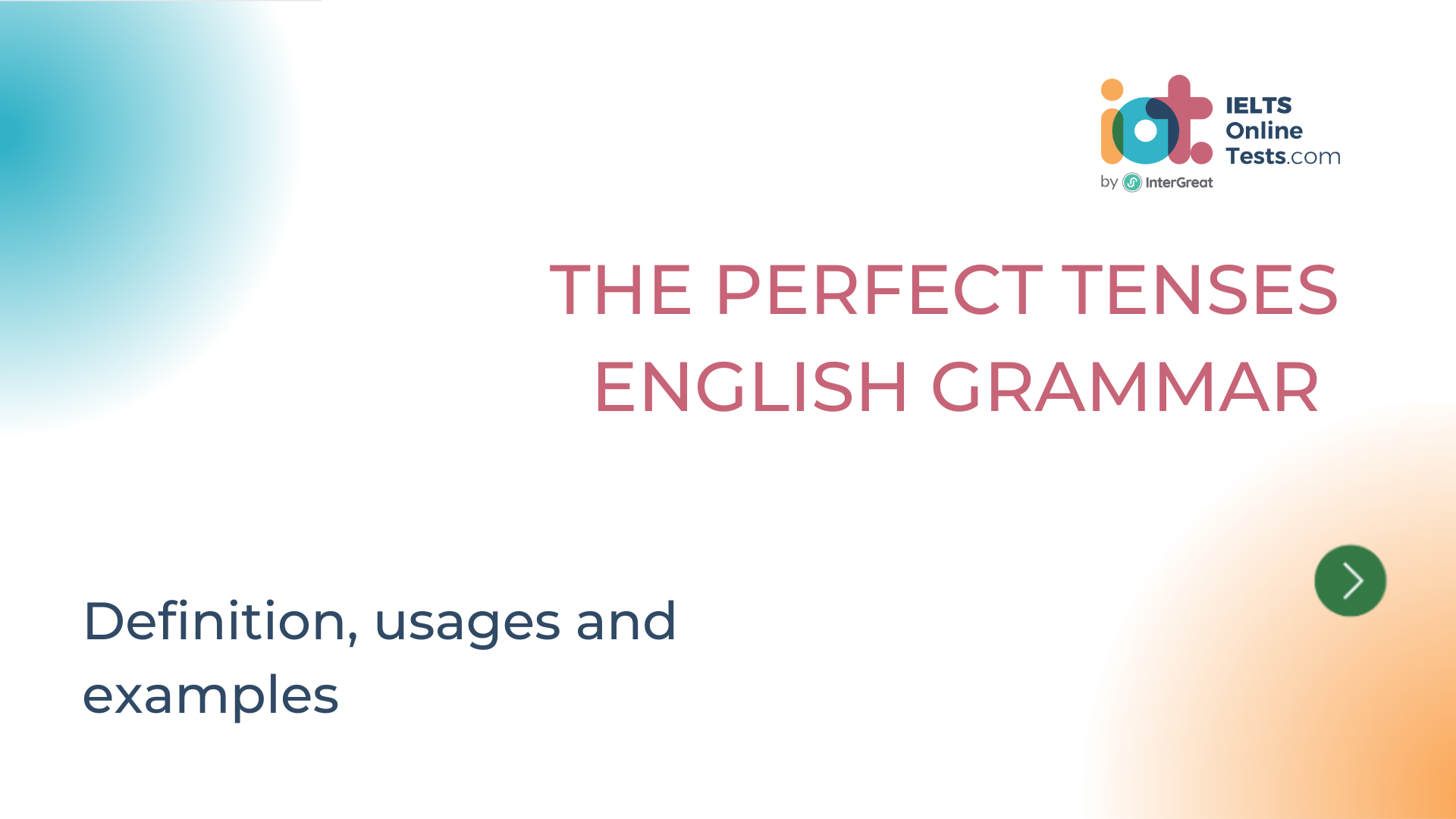
The perfect tenses in English grammar
In English grammar, the perfect tenses are used to express actions or states that are completed or have a connection to a specific point in time. They indicate the relationship between past, present, and future actions. There are three perfect tenses: present perfect, past perfect, and future perfect.
Let's explore each in detail:
Present Perfect Tense:
- Formation: Subject + "have/has" + past participle of the main verb.
- Usage: Describes actions or states that started in the past and continue to the present, or actions that occurred at an unspecified time before now.
- Example: "I have visited that city before."
Past Perfect Tense:
- Formation: Subject + "had" + past participle of the main verb.
- Usage: Describes actions or states that were completed before another past action or a specific point in the past.
- Example: "She had finished her work before the meeting started."
Future Perfect Tense:
- Formation: Subject + "will have" + past participle of the main verb.
- Usage: Describes actions that will be completed before a specific future time or reference point.
- Example: "By next year, he will have graduated from university."
Key Points to Remember:
- Perfect tenses indicate completed actions, ongoing states, or actions that have a connection to a specific point in time.
- They are formed using an auxiliary verb (have/has, had, will have) followed by the past participle of the main verb.
- The time frame of the action determines the tense used (present, past, or future).
- Perfect tenses often include time expressions or indicators of duration.
- These tenses are useful for discussing experiences, accomplishments, or actions that have an impact on the present or future.
By understanding the perfect tenses, you can effectively communicate the completion or relevance of actions or states in relation to specific timeframes.




